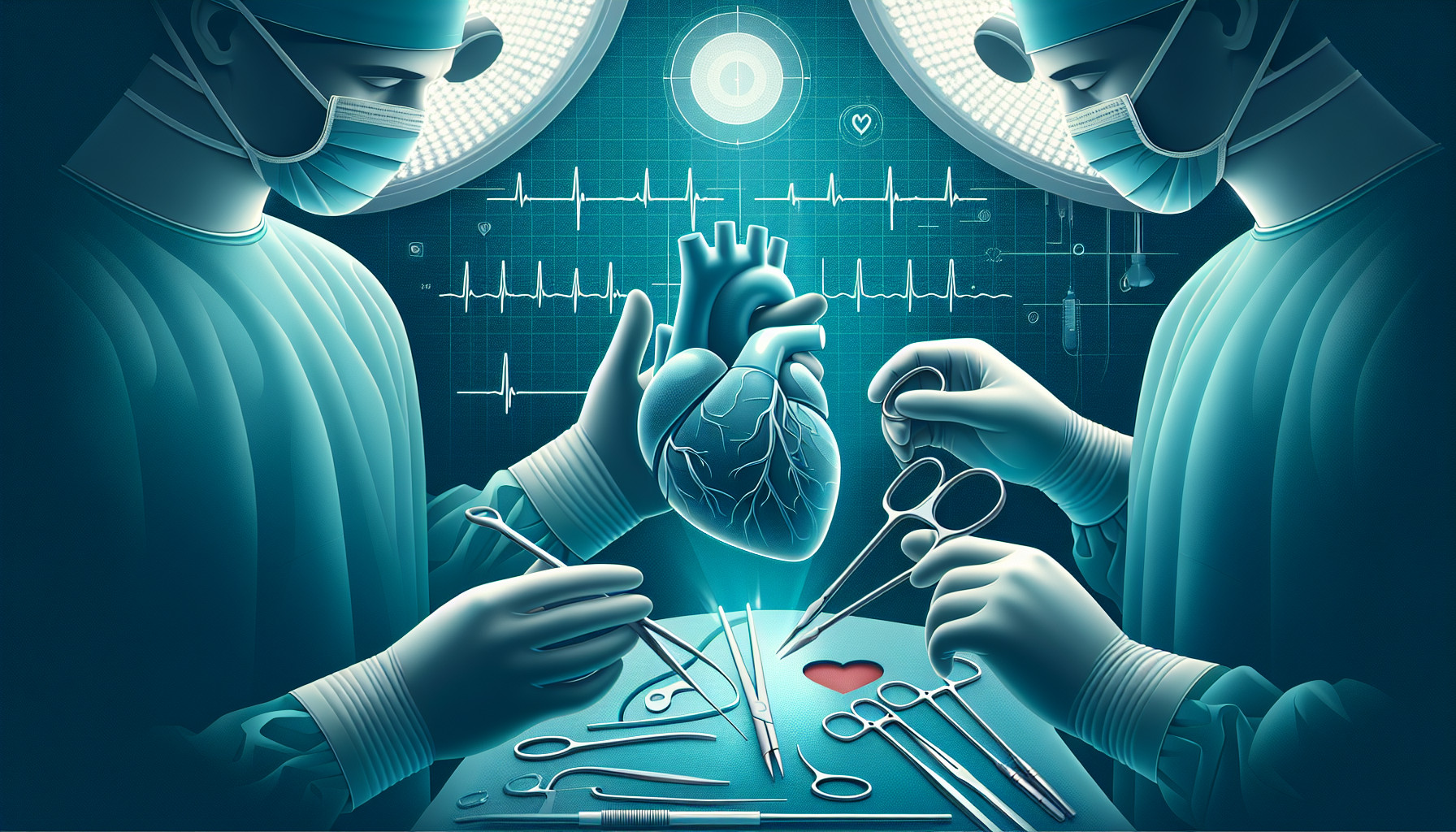Our Summary
This research paper looks at whether new cases of diabetes occur after patients undergo coronary artery bypass graft (CABG) surgery in India. The researchers found that out of 933 patients who did not have diabetes before the surgery, about 6.1% developed persistently high blood sugar levels, a sign of diabetes, after the surgery. These patients were more likely to have had impaired glucose tolerance before the surgery and spent a longer time in intensive care and the hospital. The researchers concluded that a significant number of non-diabetic patients may develop diabetes after CABG surgery, particularly those with impaired glucose tolerance and a prolonged hospital stay.
FAQs
- Do new cases of diabetes occur after patients undergo coronary artery bypass graft (CABG) surgery?
- What factors increase the likelihood of developing diabetes after a CABG surgery?
- How significant is the risk of developing diabetes after a CABG surgery for non-diabetic patients?
Doctor’s Tip
A doctor might advise a patient undergoing CABG surgery to closely monitor their blood sugar levels before and after the procedure, especially if they have impaired glucose tolerance. They may also recommend maintaining a healthy lifestyle, including regular exercise and a balanced diet, to help reduce the risk of developing diabetes post-surgery. Additionally, patients should follow up with their healthcare provider regularly to ensure their blood sugar levels are well-controlled.
Suitable For
Patients who are typically recommended for CABG surgery include those with severe blockages in their coronary arteries that cannot be effectively treated with medication or less invasive procedures such as angioplasty. These patients may have symptoms such as chest pain (angina) or shortness of breath, or they may have had a heart attack.
Other factors that may make a patient a candidate for CABG surgery include:
- Multiple blockages in the coronary arteries
- Left main coronary artery disease
- Diabetes
- Reduced heart function (low ejection fraction)
- Previous unsuccessful angioplasty procedures
- Chronic kidney disease
- Severe angina that is not controlled with medication
- High-risk factors for complications during angioplasty or other procedures
It is important for patients to discuss the risks and benefits of CABG surgery with their healthcare provider to determine if it is the best treatment option for their individual situation.
Timeline
Before CABG surgery:
- Patient is diagnosed with coronary artery disease and recommended for CABG surgery.
- Patient undergoes preoperative tests and evaluations to assess their overall health and determine the best course of treatment.
- Patient may need to make lifestyle changes, such as quitting smoking or improving diet and exercise habits, to prepare for surgery.
- Patient is admitted to the hospital on the day of surgery and undergoes the procedure under general anesthesia.
After CABG surgery:
- Patient is closely monitored in the intensive care unit (ICU) immediately after surgery for any complications.
- Patient may experience pain, fatigue, and discomfort in the days following surgery.
- Patient undergoes physical therapy and rehabilitation to regain strength and mobility.
- Patient is discharged from the hospital and continues to follow up with their healthcare team for postoperative care.
- Patient is advised to make further lifestyle changes, such as taking medications, attending cardiac rehabilitation, and making healthy choices to prevent future heart problems.
- Patient may be at risk for developing new health conditions, such as diabetes, as a result of the surgery and should be monitored closely for any changes in health status.
What to Ask Your Doctor
- What is the likelihood of developing diabetes after CABG surgery?
- What are the risk factors for developing diabetes post-surgery?
- How can I monitor my blood sugar levels after surgery?
- What lifestyle changes can I make to reduce my risk of developing diabetes?
- Are there any medications or treatments that can help prevent diabetes after CABG surgery?
- How often should I follow up with my healthcare provider to monitor for diabetes?
- Will developing diabetes after CABG surgery impact my recovery or long-term health outcomes?
- Are there any specific dietary recommendations I should follow to reduce my risk of diabetes?
- Are there any additional tests or screenings I should undergo to monitor for diabetes post-surgery?
- Are there any support resources available to help me manage my risk of developing diabetes after CABG surgery?
Reference
Authors: Lodha S, Sharma KK, Bana A, Mehta N, Gupta R. Journal: Indian Heart J. 2018 Dec;70 Suppl 3(Suppl 3):S221-S223. doi: 10.1016/j.ihj.2018.11.017. Epub 2018 Dec 7. PMID: 30595262
